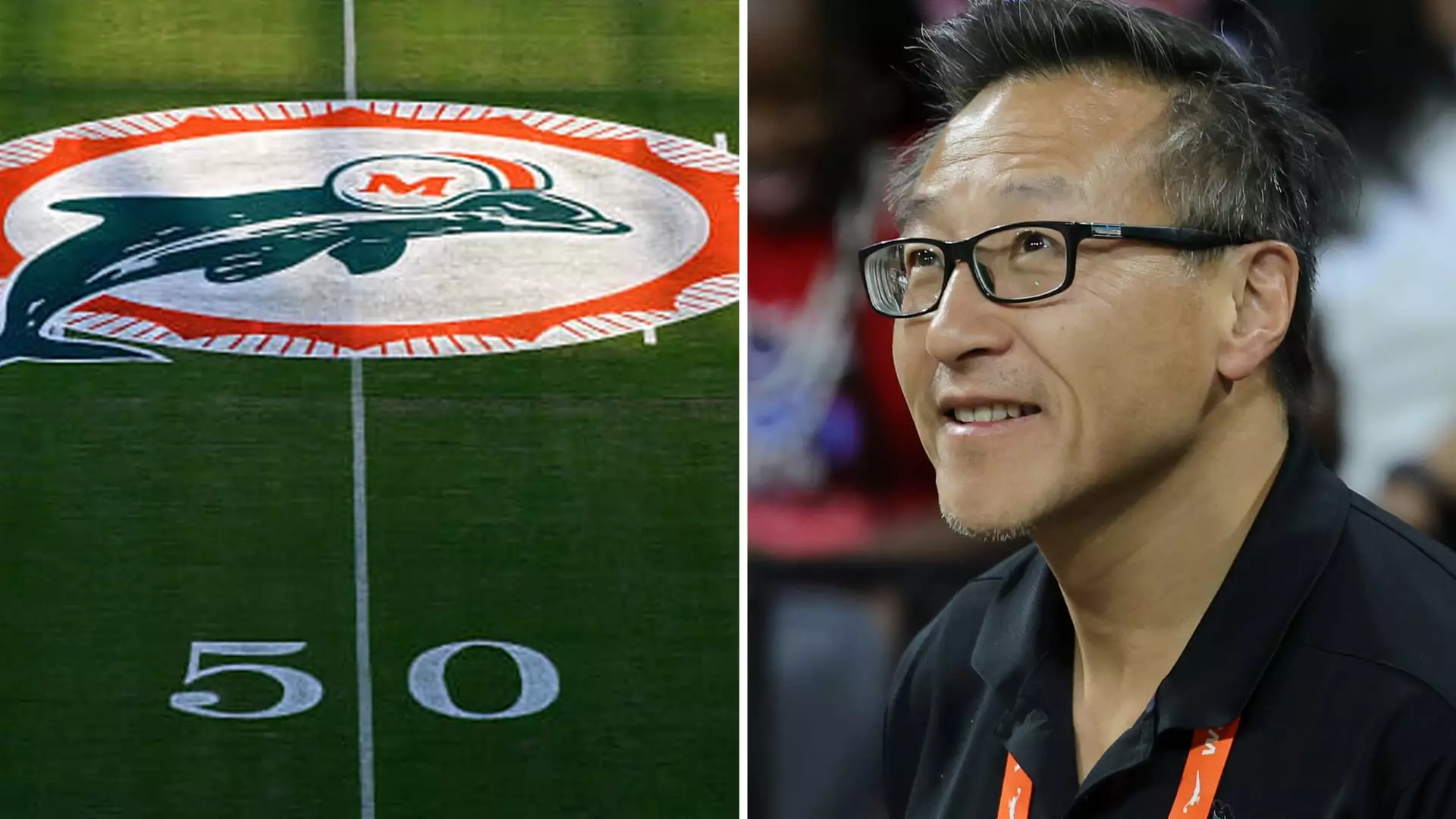Recent negotiations involving the Miami Dolphins signal a transformative moment in professional sports ownership. The Dolphins, a storied NFL franchise, are engaged in advanced discussions to sell a minority stake to Ares Management, a prominent private equity firm, as well as to billionaire businessman Joe Tsai. This move underscores a broader trend wherein sports team owners seek diversified opportunities to expand their portfolios. As financing mechanics within sports evolve, owners are now motivated to not only enhance shareholder value but also to adapt to changing economic landscapes by leveraging their franchises to generate additional revenue streams.
This current deal, reported to value the Miami Dolphins and associated assets, including Hard Rock Stadium and the rights for major events like the Miami Grand Prix and the Miami Open, at approximately $8.1 billion, positions the Dolphins as a critical player in an increasingly lucrative market. With a valuation surpassing $10 billion for controlling interests, these negotiations highlight the high stakes involved in pro sports, emphasizing the delicate balance between ownership control and investment opportunities.
The Financial Landscape of the Dolphins
A deep dive into the financial underpinnings of the Miami Dolphins reveals an organization that has seen substantial revenue growth, reporting $673 million in 2023 alone. These figures exemplify the Dolphins’ viability as not just a team but a multifaceted entertainment business. At the heart of this operation is owner Stephen Ross, who acquired the franchise in 2009 for $1.1 billion. The prospective sale of minority stakes signals a strategic pivot for Ross, as plans emerge for reinvesting proceeds into South Florida’s real estate and doubling down on his existing sports investments.
Ross’s dual role as both team owner and stadium operator affords him a unique vantage point. By controlling the stadium’s operations, he can bolster income through a range of events beyond just football. This operational synergy introduces an effective business model that maximizes revenue opportunities, positioning the Dolphins favorably within the corporate sports ecosystem.
The recent decision by the NFL to permit select private equity firms the opportunity to invest in team stakes introduces a significant shift in how NFL franchises approach capital generation. Historically resistant to similar arrangements, the NFL has recognized the necessity for financial fluidity among its franchises. The league’s transformation illustrates a keen awareness of rising valuations and the challenges they pose in identifying potential buyers.
Ares Management, with an impressive $450 billion in assets, stands as a vanguard in these discussions, representing the NFL’s cautious but progressive leap into private equity investment. This substantial endorsement mirrors the overarching trend that sees successful investors flocking to team ownership as a lucrative asset class, emphasizing the evolving relationship between wealth and sports franchise ownership.
In a broader context, Joe Tsai’s involvement is noteworthy as he propels his status as a leading figure in the sports domain. As the owner of the Brooklyn Nets and the New York Liberty, alongside his interests in other franchises, Tsai embodies the convergence of sports, business, and lifestyle within American culture. His expanding empire illustrates how individuals are diversifying their investments amidst an escalating demand for sports entertainment, ensuring sustainable growth trajectories.
While plans for the sale remain tentative, with no formal agreements in place as of yet, the interactions among these parties point toward an ongoing evolution of sports ownership in the 21st century. The implications extend far beyond the Dolphins, as similar models of partnership and investment strategy could redefine the operational frameworks of professional sports across the nation.
As the Miami Dolphins navigate this pivotal moment with prospective minority investors, the implications for sports ownership could be profound. The changing financial dynamics combined with Ross’s strategic plans for revenue generation set the stage for a fertile landscape in which minority stakes could spawn new opportunities for growth and innovation. The eventual outcome of these negotiations could lay the groundwork for how NFL franchises pursue investment strategies in the years ahead, ultimately reshaping the way we view ownership and collaboration in professional sports.


Leave a Reply